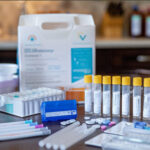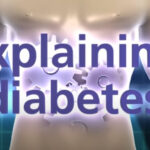Our modern diet has caused many of us to become deficient in certain minerals and our dental health can become adversely affected. Cavities in children and people of all ages are being linked to nutritional deficiencies.
Table of Contents
Most of us take for granted that we are getting enough of the needed minerals in our diet. That assumes that everyone knows the importance of minerals for our health and wellbeing.
Much of our farmed soil has become depleted and the majority of people cannot afford a completely organic diet. Combined with dietary choices based on taste rather than health, it is easy to see how these nutritional deficiencies can occur.

The Dental Health Service in the UK
The state of dental health services in the UK is generally not good, notwithstanding a comprehensive National Health Service (NHS) dental system in place to provide care to the population. However, there are some challenges and areas that need improvement. One major issue is the increasing demand for dental services, leading to long waiting times for appointments and difficulties in accessing care.
This is partly due to a shortage of dentists, particularly in certain areas of the country. Another concern is the high cost of private dental care, which can be a barrier to accessing treatment for some people. This has led to inequalities in dental health, with those on lower incomes less likely to visit the dentist regularly. There is also a growing awareness of the importance of preventive dental care, with an emphasis on regular check-ups, good oral hygiene practices, and healthy eating habits to maintain dental health.
This is particularly important given the links between poor oral health and conditions such as heart disease, diabetes, and respiratory problems. Overall, it is clear that we need to take better care of our teeth than ever before. This includes regular visits to the dentist, following good oral hygiene practices, and making healthy lifestyle choices to protect our dental health and overall well-being.

Phytic Acid Locks Up Essential Minerals
Phytic acid is a substance commonly found in most grains, nuts, and beans. It can bind to minerals in your body, just like a magnet. This process removes the minerals before they get a chance to be absorbed and deposited where we need them most.
If your family’s diet consists largely of grains (crackers, cereals, bread, pasta, rice, bagels, cookies, cakes) or bean salad or raw nuts and nut butters, chances are you are getting copious amounts of phytic acid in your diet and not enough minerals for your teeth and bones to grow and remain strong.
In addition to reducing intake of these food types, there are food preparation methods, such as soaking your beans and nuts overnight that can help remove some of the phytic acid before it is consumed.
Supplementation for Good Dental Health
Keeping the immune system strong with antimicrobials can help fight off decay and prevent infection or abscesses from setting in. Popular antimicrobials include licorice, myrrh, goldenseal, and echinacea. Including garlic in your diet wherever possible is beneficial for boosting your immune system and preventing infections.
Calcium
Our dental enamel is approximately 90 percent calcium phosphate.
Calcium Rich Herb Sources
- Shepard’s Purse, Clivers, Coltsfoot, Horsetail, Toadflax, Mistletoe, Dandelion, Plantain, Pimpernel and Chamomile.
- Include these in your diet via teas, capsules, tablets, or powders.
Calcium Deficiency
The body is always communicating feedback to us. The trick is learning how to listen to the signals. Signs of calcium deficiency include:
- Rickets, unexplained nervousness, muscle spasms and cramps, joint pains, osteomalacia, cataracts, insomnia, and tremors.
Getting enough calcium is important, but the issue of effective uptake of calcium may have more to do with the lack of Magnesium, Vitamin D, and K2. This can be obtained from the foods we eat or by supplementation to ensure that the calcium we are digesting is getting absorbed correctly. If any of these are lacking the body will pass much of the available calcium from the body before it can be used.
How to Reduce Halitosis (Bad Breath)
1. Practice good oral hygiene: Brush your teeth at least twice a day and floss daily to remove food particles and bacteria that can cause bad breath.
2. Use mouthwash: Rinse your mouth with an antiseptic mouthwash to kill bacteria and freshen your breath.
3. Drink plenty of water: Staying hydrated helps prevent dry mouth, which can lead to bad breath.
4. Avoid foods that can cause bad breath: Foods like garlic, onions, and spicy foods can leave a lingering odor on your breath.
5. Quit smoking: Smoking not only contributes to bad breath but also damages your teeth and gums.
6. Visit your dentist regularly: Regular dental check-ups can help identify and treat any underlying dental issues that may be causing bad breath.
7. Brush or scrape your tongue: Bacteria can build up on your tongue and contribute to bad breath. Use a tongue scraper or brush to clean your tongue regularly.
8. Chew sugar-free gum: Chewing gum can stimulate saliva production, which helps wash away bacteria and food particles that can cause bad breath.
9. Eat a healthy diet: Eating a balanced diet rich in fruits and vegetables can help keep your mouth healthy and reduce bad breath.
10. Consider using breath fresheners: Breath mints or sprays can provide a quick fix for bad breath, but be sure to address the underlying cause as well.
Vitamins A, C, and D
If not enough of these vitamins are being absorbed by the body, the teeth will break down and loosen.
Vitamin K2
Naturally found in the fermented Japanese dish of Natto Beans, this supplement has gained much attention recently. It is reported that anyone who is taking Vitamin D or Calcium supplementation should also be taking K2.
It is naturally found in egg yolks and some hard cheeses; however, the amount claimed to be needed in our diet is unattainable unless you are frequently consuming the fermented Natto Bean mixture.
K2 helps to deposit minerals such as calcium into the correct places in our bodies, such as the bones and the teeth, and remove excess calcium from where we don’t want it deposited, such as between the joints, where it can cause painful inflammation.
Silica
Ever important for bone, teeth, skin, and hair care, you can add this mineral to your diet with horsetail tea.

Fluoride in Drinking Water for Dental Health
The addition of fluoride to drinking water is generally considered beneficial for dental health. Fluoride helps prevent tooth decay and strengthens tooth enamel, which can reduce the risk of cavities. However, excessive fluoride intake can lead to dental fluorosis, a condition that affects the appearance of tooth enamel, causing white spots or streaks.
The optimal level of fluoride in drinking water is carefully monitored to provide dental benefits while minimizing the risk of fluorosis. Many health organizations, including the World Health Organization (WHO) and the American Dental Association (ADA), support water fluoridation as a safe and effective public health measure to improve dental health.
However, some people have concerns about potential adverse effects of fluoride, such as skeletal fluorosis or other health issues. These concerns are often associated with high levels of fluoride exposure, typically beyond what is found in optimally fluoridated water.
Overall, the consensus among health experts is that the benefits of water fluoridation in preventing tooth decay outweigh the potential risks when fluoride levels are maintained within recommended limits.
FAQ:
Q: How often should I brush my teeth?
Twice daily, for at least two minutes each time.
Q: Do I need to floss every day?
Yes, flossing daily is crucial for removing plaque from between teeth where brushing can't reach.
Q: What if I have a dental phobia?
Talk to your dentist about your concerns. Many dental professionals offer techniques and strategies to help manage anxiety.
Q: Are electric toothbrushes better than manual ones?
Both can be effective with proper technique. Choose the one you find most comfortable and effective.
The British Dental Association is the voice of dentists in the UK
If you need any further information or assistance with this article, don't hesitate to Contact Us




















